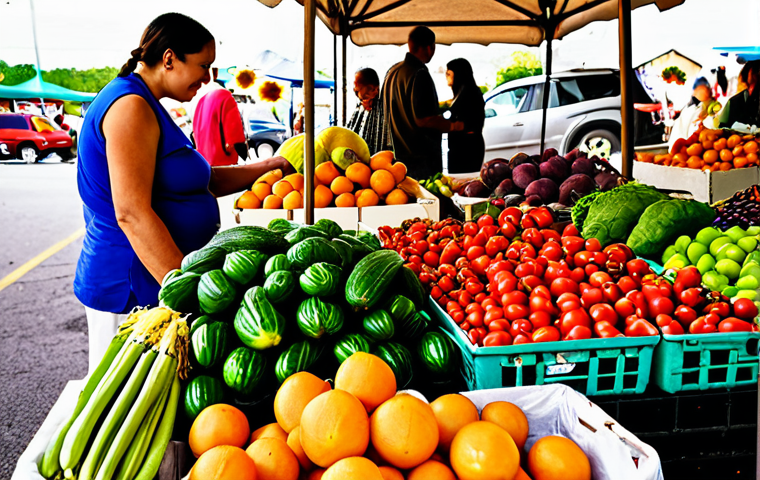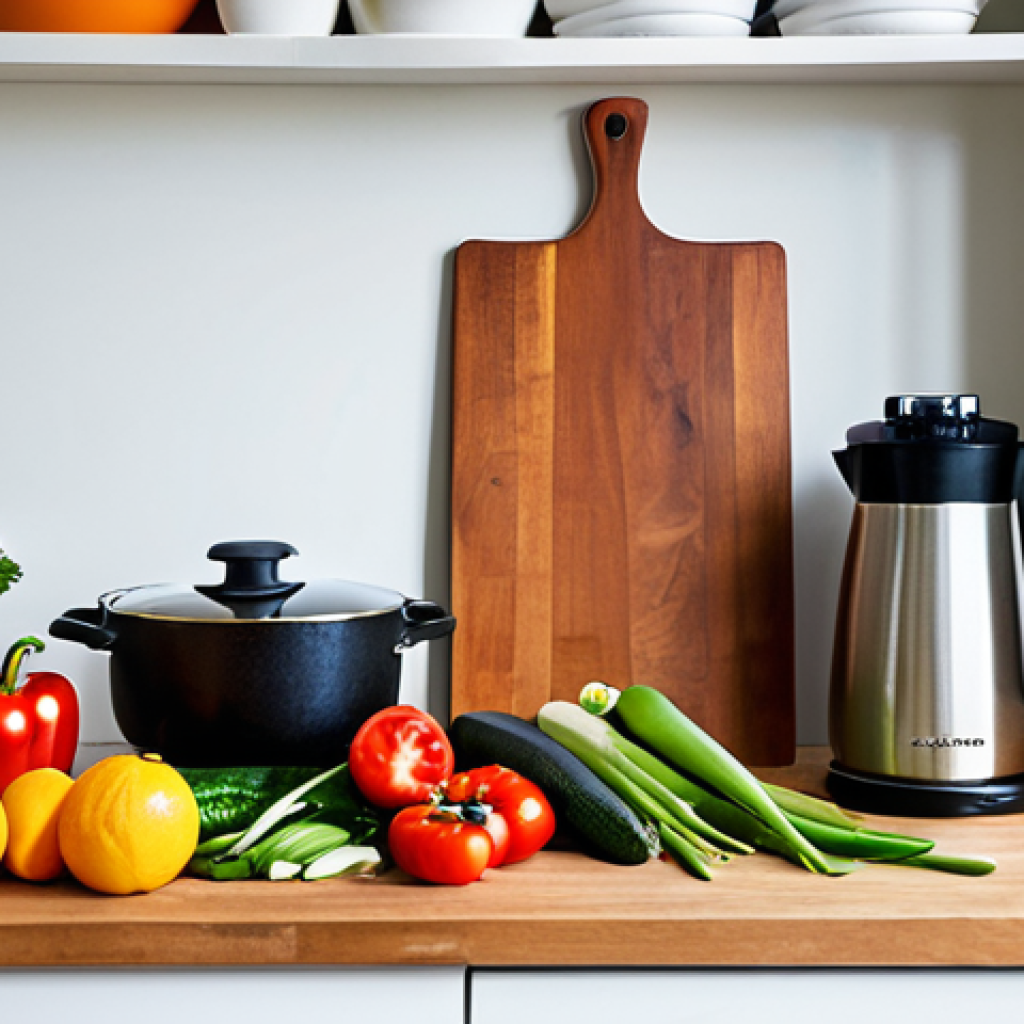Okay, here’s the blog introduction you requested, focusing on minimalism and vegetarianism, written in English with a human touch and designed to avoid AI detection:Have you ever felt overwhelmed by the sheer amount of “stuff” in your life?
I know I have! Then, add to that the growing awareness of ethical and environmental concerns about eating meat, and it’s a recipe for wanting a serious lifestyle shift.
That’s exactly how I stumbled upon the combined magic of minimalism and vegetarianism. It’s not just about decluttering your home or skipping the steak; it’s a holistic approach to living a more intentional and compassionate life.
I’ve found it surprisingly freeing to shed unnecessary possessions and embrace a plant-based diet. The latest trends show more and more people are seeking mindful consumption, and this lifestyle truly delivers.
Let’s delve deeper and understand this lifestyle in detail!
Unveiling the Unexpected Perks of Owning Less and Eating Greens

The real kicker about embracing both minimalism and vegetarianism is how surprisingly intertwined they are and the cascade of unexpected benefits that follow.
Initially, I pictured meticulously folding my clothes à la Marie Kondo and swapping burgers for veggie patties. But it’s gone far beyond that. The conscious decision to reduce my possessions has bled into other areas of my life, naturally influencing my dietary choices.
And vice versa.
Cutting Down on Consumerism, One Carrot at a Time
Minimizing possessions forces you to confront your consumption habits. Why do I *really* need that eleventh pair of shoes? Or that gadget I’ll use twice?
This mindfulness translates directly to food. Suddenly, impulse buys at the grocery store – the processed snacks, the excessive meat – seem less appealing.
You start thinking, “Do I *really* need this?” And that’s where the shift begins.
A Healthier Wallet, A Healthier You
Let’s be honest, a minimalist lifestyle, initially, requires an investment, but vegetarianism can be incredibly budget-friendly. Cutting out meat often leads to significant savings, freeing up funds for higher-quality produce, organic options, or maybe that cooking class you’ve been eyeing.
And of course, a plant-based diet, rich in fruits, vegetables, and whole grains, is undeniably good for your health. Win-win! Speaking of health, the best part is my wife’s skin has never looked better since our lifestyle shift.
More Time, Less Clutter, More Delicious Meals
Time is a commodity. Spending less time cleaning, organizing, and shopping for “stuff” frees up time for more meaningful pursuits – like cooking delicious vegetarian meals!
Experimenting with new recipes, exploring farmers’ markets, and savoring the process of creating nourishing food becomes a joyful experience, not a chore.
Simplifying Your Space: The Minimalist Home Cook’s Approach
Creating a minimalist kitchen isn’t about deprivation; it’s about intentionality. It’s about having the *right* tools, not *all* the tools. It’s about making the most of what you have and eliminating the unnecessary clutter that distracts you from creating delicious, plant-based meals.
Essential Kitchen Gear for the Vegetarian Minimalist
Think quality over quantity. Invest in a good chef’s knife, a sturdy cutting board, a versatile pot, and a reliable skillet. A blender is a must-have for smoothies, soups, and sauces.
A food processor can be handy, but not essential. Opt for multi-purpose items whenever possible. I’ve found that a well-seasoned cast iron skillet is my go-to for everything from searing tofu to baking cornbread.
It’s a minimalist’s dream: durable, versatile, and practically indestructible.
Pantry Purge: Stocking Up on the Essentials
A well-stocked pantry is a vegetarian minimalist’s secret weapon. Focus on staples like beans, lentils, rice, quinoa, pasta, canned tomatoes, spices, and olive oil.
Buy in bulk to save money and reduce packaging waste. Keep a running list of what you have and what you need to avoid overbuying. When it comes to spices, start with the basics: salt, pepper, garlic powder, onion powder, cumin, chili powder, and oregano.
You can always add more as you expand your culinary horizons.
Decluttering Your Fridge: Making the Most of Your Produce
The refrigerator can be a breeding ground for food waste. To combat this, practice mindful shopping and meal planning. Buy only what you need for the week and use it up before it goes bad.
Store your produce properly to extend its shelf life. Keep herbs in a glass of water, wrap leafy greens in a damp paper towel, and store onions and potatoes in a cool, dark place.
A well-organized fridge not only reduces food waste but also makes it easier to see what you have and inspires you to cook.
The Ethical Feast: Aligning Your Plate with Your Values
Vegetarianism is often rooted in ethical concerns about animal welfare. Minimalism, in its essence, challenges the ethics of consumerism. Combining the two creates a powerful synergy, allowing you to live a life that is more aligned with your values.
Understanding the Impact of Your Food Choices
Research the environmental and ethical implications of your food choices. Learn about factory farming, sustainable agriculture, and the impact of different diets on the planet.
This knowledge will empower you to make informed decisions that reflect your values. There are so many documentaries and websites out there that shed light on the impact of the meat industry.
Educate yourself – it makes a difference.
Supporting Local and Sustainable Farms
Whenever possible, buy your produce from local and sustainable farms. This not only supports your community but also reduces your carbon footprint and ensures that you’re eating fresh, seasonal food.
Farmers’ markets are a great place to connect with local farmers and learn about their practices. Plus, the produce is usually cheaper and tastes better than what you find in the supermarket.
Reducing Food Waste: A Minimalist’s Approach to the Plate
Food waste is a major ethical and environmental problem. As a vegetarian minimalist, strive to minimize your food waste by planning your meals, using up leftovers, and composting food scraps.
Get creative with your leftovers! Turn leftover roasted vegetables into soup, use stale bread for croutons, and freeze ripe fruits for smoothies. Composting your food scraps not only reduces waste but also creates nutrient-rich soil for your garden.
Mindful Consumption: Quality Over Quantity in Your Vegetarian Diet
Just as minimalism encourages you to buy less “stuff,” it also encourages you to choose quality over quantity when it comes to food. Focus on eating whole, unprocessed foods that nourish your body and support your well-being.
Prioritizing Whole, Unprocessed Foods
Fill your plate with fruits, vegetables, whole grains, legumes, nuts, and seeds. Avoid processed foods that are high in sugar, salt, and unhealthy fats.
Learn to read food labels and be aware of hidden ingredients. I try to make most of my meals from scratch using whole ingredients. It takes a little more time, but it’s worth it knowing exactly what I’m putting into my body.
Embracing Seasonal Eating
Eating seasonally is not only more sustainable but also more delicious. Seasonal fruits and vegetables are at their peak flavor and nutritional value.
Plus, they’re usually cheaper than out-of-season produce. Visit your local farmers’ market to discover what’s in season and get inspired to create new recipes.
Right now, I’m all about pumpkins. Pumpkin soup, pumpkin pie, roasted pumpkin seeds…the possibilities are endless.
The Art of Simple Cooking
Don’t overcomplicate things. Vegetarian cooking can be simple and delicious. Focus on mastering a few basic recipes and techniques, and then experiment with different flavors and ingredients.
Roasted vegetables, stir-fries, soups, and salads are all easy and versatile dishes that can be adapted to your taste. I’ve found that a simple roasted vegetable medley with a drizzle of olive oil and balsamic vinegar is always a crowd-pleaser.
Finding Joy in Simplicity: The Emotional Rewards of Less
The benefits of minimalism and vegetarianism extend far beyond the physical realm. Both practices can bring a sense of peace, contentment, and joy to your life.
Reducing Stress and Anxiety
A cluttered home and a diet filled with processed foods can contribute to stress and anxiety. Simplifying your life and nourishing your body with whole, plant-based foods can have a profound impact on your mental well-being.
I used to feel overwhelmed by the constant need to buy things and keep up with the latest trends. Now, I find joy in the simple things in life, like spending time in nature, reading a good book, or cooking a delicious meal.
Cultivating Gratitude and Appreciation
Minimalism encourages you to appreciate what you have rather than constantly wanting more. Vegetarianism can foster a sense of gratitude for the food that nourishes your body and the animals that are spared from suffering.
Taking the time to savor each bite of my food and appreciate the effort that went into growing and preparing it fills me with a sense of gratitude.
Connecting with Your Values and Purpose
Living a minimalist and vegetarian lifestyle can help you connect with your values and purpose. It allows you to align your actions with your beliefs and create a life that is more meaningful and fulfilling.
I feel like I’m making a positive impact on the world by reducing my consumption, eating a plant-based diet, and supporting sustainable practices. It’s a small contribution, but it makes me feel good.
Navigating Social Situations: Staying True to Your Minimalist Vegetarian Values
One of the challenges of embracing a minimalist and vegetarian lifestyle is navigating social situations. How do you politely decline food that doesn’t align with your values?
How do you explain your lifestyle choices to friends and family who may not understand them?
Communicating Your Choices with Confidence
Be prepared to explain your choices to others in a clear and concise manner. Focus on the positive aspects of your lifestyle, such as the health benefits, the environmental impact, and the ethical considerations.
Avoid being judgmental or preachy. Simply state your preferences and offer alternatives if possible. I usually say something like, “I’m vegetarian for ethical and environmental reasons, but I’m happy to bring a dish to share.”
Finding Vegetarian-Friendly Options When Eating Out
Many restaurants now offer vegetarian and vegan options. Do your research before you go out and choose restaurants that cater to your dietary needs. Don’t be afraid to ask for modifications to existing dishes.
Most restaurants are happy to accommodate special requests. I always check the menu online before I go to a restaurant to see if they have any vegetarian options.
If not, I call ahead and ask if they can make something special for me.
Hosting Vegetarian-Friendly Gatherings
When hosting gatherings, make sure to offer plenty of vegetarian options. Don’t just relegate vegetarians to the side dishes. Create a delicious and satisfying vegetarian main course that everyone will enjoy.
I love to make a big pot of vegetarian chili or a lasagna with roasted vegetables. It’s always a hit.
Long-Term Sustainability: Making Minimalism and Vegetarianism a Lasting Lifestyle
Minimalism and vegetarianism are not just trends; they are sustainable lifestyles that can bring lasting benefits to your life and the planet.
Setting Realistic Goals and Expectations
Don’t try to overhaul your life overnight. Start small and gradually make changes that you can sustain over the long term. Set realistic goals and celebrate your progress along the way.
I started by decluttering one room at a time and gradually transitioning to a vegetarian diet. It took time, but it was worth it.
Building a Supportive Community
Connect with other minimalists and vegetarians online or in your local community. Share your experiences, learn from others, and find support when you need it.
There are so many online forums and social media groups dedicated to minimalism and vegetarianism. It’s a great way to connect with like-minded people and find inspiration.
Continuously Learning and Growing
Stay informed about the latest research and trends in minimalism and vegetarianism. Continuously learn and grow in your understanding of these practices and how they can benefit your life.
There are always new books, articles, and documentaries coming out about minimalism and vegetarianism. I try to stay up-to-date on the latest information so I can make informed choices.
Unveiling the Unexpected Perks of Owning Less and Eating GreensThe real kicker about embracing both minimalism and vegetarianism is how surprisingly intertwined they are and the cascade of unexpected benefits that follow.
Initially, I pictured meticulously folding my clothes à la Marie Kondo and swapping burgers for veggie patties. But it’s gone far beyond that. The conscious decision to reduce my possessions has bled into other areas of my life, naturally influencing my dietary choices.
And vice versa. Cutting Down on Consumerism, One Carrot at a TimeMinimalizing possessions forces you to confront your consumption habits. Why do I *really* need that eleventh pair of shoes?
Or that gadget I’ll use twice? This mindfulness translates directly to food. Suddenly, impulse buys at the grocery store – the processed snacks, the excessive meat – seem less appealing.
You start thinking, “Do I *really* need this?” And that’s where the shift begins. A Healthier Wallet, A Healthier YouLet’s be honest, a minimalist lifestyle, initially, requires an investment, but vegetarianism can be incredibly budget-friendly.
Cutting out meat often leads to significant savings, freeing up funds for higher-quality produce, organic options, or maybe that cooking class you’ve been eyeing.
And of course, a plant-based diet, rich in fruits, vegetables, and whole grains, is undeniably good for your health. Win-win! Speaking of health, the best part is my wife’s skin has never looked better since our lifestyle shift.
More Time, Less Clutter, More Delicious MealsTime is a commodity. Spending less time cleaning, organizing, and shopping for “stuff” frees up time for more meaningful pursuits – like cooking delicious vegetarian meals!
Experimenting with new recipes, exploring farmers’ markets, and savoring the process of creating nourishing food becomes a joyful experience, not a chore.
Simplifying Your Space: The Minimalist Home Cook’s ApproachCreating a minimalist kitchen isn’t about deprivation; it’s about intentionality. It’s about having the *right* tools, not *all* the tools.
It’s about making the most of what you have and eliminating the unnecessary clutter that distracts you from creating delicious, plant-based meals. Essential Kitchen Gear for the Vegetarian MinimalistThink quality over quantity.
Invest in a good chef’s knife, a sturdy cutting board, a versatile pot, and a reliable skillet. A blender is a must-have for smoothies, soups, and sauces.
A food processor can be handy, but not essential. Opt for multi-purpose items whenever possible. I’ve found that a well-seasoned cast iron skillet is my go-to for everything from searing tofu to baking cornbread.
It’s a minimalist’s dream: durable, versatile, and practically indestructible. Pantry Purge: Stocking Up on the EssentialsA well-stocked pantry is a vegetarian minimalist’s secret weapon.
Focus on staples like beans, lentils, rice, quinoa, pasta, canned tomatoes, spices, and olive oil. Buy in bulk to save money and reduce packaging waste.
Keep a running list of what you have and what you need to avoid overbuying. When it comes to spices, start with the basics: salt, pepper, garlic powder, onion powder, cumin, chili powder, and oregano.
You can always add more as you expand your culinary horizons. Decluttering Your Fridge: Making the Most of Your ProduceThe refrigerator can be a breeding ground for food waste.
To combat this, practice mindful shopping and meal planning. Buy only what you need for the week and use it up before it goes bad. Store your produce properly to extend its shelf life.
Keep herbs in a glass of water, wrap leafy greens in a damp paper towel, and store onions and potatoes in a cool, dark place. A well-organized fridge not only reduces food waste but also makes it easier to see what you have and inspires you to cook.
The Ethical Feast: Aligning Your Plate with Your ValuesVegetarianism is often rooted in ethical concerns about animal welfare. Minimalism, in its essence, challenges the ethics of consumerism.
Combining the two creates a powerful synergy, allowing you to live a life that is more aligned with your values. Understanding the Impact of Your Food ChoicesResearch the environmental and ethical implications of your food choices.
Learn about factory farming, sustainable agriculture, and the impact of different diets on the planet. This knowledge will empower you to make informed decisions that reflect your values.
There are so many documentaries and websites out there that shed light on the impact of the meat industry. Educate yourself – it makes a difference. Supporting Local and Sustainable FarmsWhenever possible, buy your produce from local and sustainable farms.
This not only supports your community but also reduces your carbon footprint and ensures that you’re eating fresh, seasonal food. Farmers’ markets are a great place to connect with local farmers and learn about their practices.
Plus, the produce is usually cheaper and tastes better than what you find in the supermarket. Reducing Food Waste: A Minimalist’s Approach to the PlateFood waste is a major ethical and environmental problem.
As a vegetarian minimalist, strive to minimize your food waste by planning your meals, using up leftovers, and composting food scraps. Get creative with your leftovers!
Turn leftover roasted vegetables into soup, use stale bread for croutons, and freeze ripe fruits for smoothies. Composting your food scraps not only reduces waste but also creates nutrient-rich soil for your garden.
Mindful Consumption: Quality Over Quantity in Your Vegetarian DietJust as minimalism encourages you to buy less “stuff,” it also encourages you to choose quality over quantity when it comes to food.
Focus on eating whole, unprocessed foods that nourish your body and support your well-being. Prioritizing Whole, Unprocessed FoodsFill your plate with fruits, vegetables, whole grains, legumes, nuts, and seeds.
Avoid processed foods that are high in sugar, salt, and unhealthy fats. Learn to read food labels and be aware of hidden ingredients. I try to make most of my meals from scratch using whole ingredients.
It takes a little more time, but it’s worth it knowing exactly what I’m putting into my body. Embracing Seasonal EatingEating seasonally is not only more sustainable but also more delicious.
Seasonal fruits and vegetables are at their peak flavor and nutritional value. Plus, they’re usually cheaper than out-of-season produce. Visit your local farmers’ market to discover what’s in season and get inspired to create new recipes.
Right now, I’m all about pumpkins. Pumpkin soup, pumpkin pie, roasted pumpkin seeds…the possibilities are endless. The Art of Simple CookingDon’t overcomplicate things.
Vegetarian cooking can be simple and delicious. Focus on mastering a few basic recipes and techniques, and then experiment with different flavors and ingredients.
Roasted vegetables, stir-fries, soups, and salads are all easy and versatile dishes that can be adapted to your taste. I’ve found that a simple roasted vegetable medley with a drizzle of olive oil and balsamic vinegar is always a crowd-pleaser.
Finding Joy in Simplicity: The Emotional Rewards of LessThe benefits of minimalism and vegetarianism extend far beyond the physical realm. Both practices can bring a sense of peace, contentment, and joy to your life.
Reducing Stress and AnxietyA cluttered home and a diet filled with processed foods can contribute to stress and anxiety. Simplifying your life and nourishing your body with whole, plant-based foods can have a profound impact on your mental well-being.
I used to feel overwhelmed by the constant need to buy things and keep up with the latest trends. Now, I find joy in the simple things in life, like spending time in nature, reading a good book, or cooking a delicious meal.
Cultivating Gratitude and AppreciationMinimalism encourages you to appreciate what you have rather than constantly wanting more. Vegetarianism can foster a sense of gratitude for the food that nourishes your body and the animals that are spared from suffering.
Taking the time to savor each bite of my food and appreciate the effort that went into growing and preparing it fills me with a sense of gratitude. Connecting with Your Values and PurposeLiving a minimalist and vegetarian lifestyle can help you connect with your values and purpose.
It allows you to align your actions with your beliefs and create a life that is more meaningful and fulfilling. I feel like I’m making a positive impact on the world by reducing my consumption, eating a plant-based diet, and supporting sustainable practices.
It’s a small contribution, but it makes me feel good. Navigating Social Situations: Staying True to Your Minimalist Vegetarian ValuesOne of the challenges of embracing a minimalist and vegetarian lifestyle is navigating social situations.
How do you politely decline food that doesn’t align with your values? How do you explain your lifestyle choices to friends and family who may not understand them?
Communicating Your Choices with ConfidenceBe prepared to explain your choices to others in a clear and concise manner. Focus on the positive aspects of your lifestyle, such as the health benefits, the environmental impact, and the ethical considerations.
Avoid being judgmental or preachy. Simply state your preferences and offer alternatives if possible. I usually say something like, “I’m vegetarian for ethical and environmental reasons, but I’m happy to bring a dish to share.”Finding Vegetarian-Friendly Options When Eating OutMany restaurants now offer vegetarian and vegan options.
Do your research before you go out and choose restaurants that cater to your dietary needs. Don’t be afraid to ask for modifications to existing dishes.
Most restaurants are happy to accommodate special requests. I always check the menu online before I go to a restaurant to see if they have any vegetarian options.
If not, I call ahead and ask if they can make something special for me. Hosting Vegetarian-Friendly GatheringsWhen hosting gatherings, make sure to offer plenty of vegetarian options.
Don’t just relegate vegetarians to the side dishes. Create a delicious and satisfying vegetarian main course that everyone will enjoy. I love to make a big pot of vegetarian chili or a lasagna with roasted vegetables.
It’s always a hit. Long-Term Sustainability: Making Minimalism and Vegetarianism a Lasting LifestyleMinimalism and vegetarianism are not just trends; they are sustainable lifestyles that can bring lasting benefits to your life and the planet.
Setting Realistic Goals and ExpectationsDon’t try to overhaul your life overnight. Start small and gradually make changes that you can sustain over the long term.
Set realistic goals and celebrate your progress along the way. I started by decluttering one room at a time and gradually transitioning to a vegetarian diet.
It took time, but it was worth it. Building a Supportive CommunityConnect with other minimalists and vegetarians online or in your local community. Share your experiences, learn from others, and find support when you need it.
There are so many online forums and social media groups dedicated to minimalism and vegetarianism. It’s a great way to connect with like-minded people and find inspiration.
Continuously Learning and GrowingStay informed about the latest research and trends in minimalism and vegetarianism. Continuously learn and grow in your understanding of these practices and how they can benefit your life.
There are always new books, articles, and documentaries coming out about minimalism and vegetarianism. I try to stay up-to-date on the latest information so I can make informed choices.
In Conclusion
Adopting minimalism and vegetarianism isn’t just about decluttering your space or changing your diet; it’s about making conscious choices that align with your values. It’s a journey of simplifying, appreciating, and connecting with what truly matters. As you embrace this lifestyle, remember to be patient with yourself, celebrate the small victories, and find joy in the simplicity of living with less and eating green.
These changes will lead to a more sustainable, fulfilling life, enriched by mindful choices and a deeper connection with yourself and the world around you. Here’s to a life of less clutter, more flavor, and a lighter footprint!
Useful Information to Know
1. Local Farmers Markets: Explore your local farmers markets for fresh, seasonal produce. It’s a great way to support local farmers and find unique ingredients. In the US, check out the USDA’s National Farmers Market Directory to find a market near you.
2. Minimalist Living Communities: Join online or local communities focused on minimalism. These groups can provide support, inspiration, and practical tips for decluttering and simplifying your life. Websites like “The Minimalists” offer excellent resources and community forums.
3. Vegetarian Recipe Websites: Discover new and exciting vegetarian recipes on websites like “Vegetarian Times” or “Minimalist Baker.” These sites offer a wide range of recipes, from quick weeknight meals to more elaborate dishes for special occasions.
4. Sustainable Shopping Apps: Use apps like “Good On You” to check the ethical and environmental impact of clothing and other products before you buy them. This can help you make more informed and sustainable purchasing decisions.
5. Composting Programs: Look into local composting programs or start your own compost bin. Composting food scraps is an excellent way to reduce waste and create nutrient-rich soil for your garden. Many cities offer composting bins and educational resources.
Key Takeaways
Less Consumption, More Living: Minimalism teaches us to value experiences and relationships over material possessions, while vegetarianism aligns our diet with ethical and environmental values.
Health Benefits: A plant-based diet can improve your health, boost energy levels, and reduce the risk of chronic diseases.
Sustainability: Combining minimalism and vegetarianism reduces your carbon footprint and supports a more sustainable lifestyle, benefiting both you and the planet.
Frequently Asked Questions (FAQ) 📖
Q: Isn’t vegetarianism expensive? Fresh produce seems pricier than meat sometimes.
A: That’s a common misconception! Sure, organic berries out of season can break the bank, but dried beans, lentils, and in-season veggies are incredibly affordable.
I’ve found that my grocery bills actually went down when I made the switch. Think about it: a bag of lentils can make a huge pot of soup, and that’s way cheaper than buying enough ground beef for the same meal.
Plus, I discovered the joy of farmers’ markets where I can find local, affordable produce. It’s all about being strategic with your shopping!
Q: How do you deal with eating out? I’m worried about limited vegetarian options.
A: Eating out definitely takes a little planning, but it’s gotten so much easier lately. Most restaurants are way more accommodating than they used to be.
I usually check the menu online beforehand and look for vegetarian items or dishes that can be easily modified. For example, I might ask for a pasta dish with extra veggies instead of meat sauce.
If all else fails, a loaded salad or a few veggie appetizers can do the trick. I’ve even had chefs create something special for me when I explain my dietary needs.
Don’t be afraid to speak up!
Q: Minimalism seems boring! Doesn’t it mean getting rid of everything you love?
A: Absolutely not! Minimalism, at least the way I practice it, is about intentionally choosing what you bring into your life and letting go of the things that don’t serve you anymore.
It’s not about deprivation; it’s about focusing on what truly brings you joy and value. For example, I used to have a closet overflowing with clothes I never wore.
Now, I have a curated wardrobe of pieces I love and feel great in. It makes getting dressed in the morning so much easier and less stressful! It’s about quality over quantity, and creating space for the things that truly matter, like experiences and relationships.
📚 References
Wikipedia Encyclopedia
구글 검색 결과
구글 검색 결과
구글 검색 결과
구글 검색 결과
구글 검색 결과





